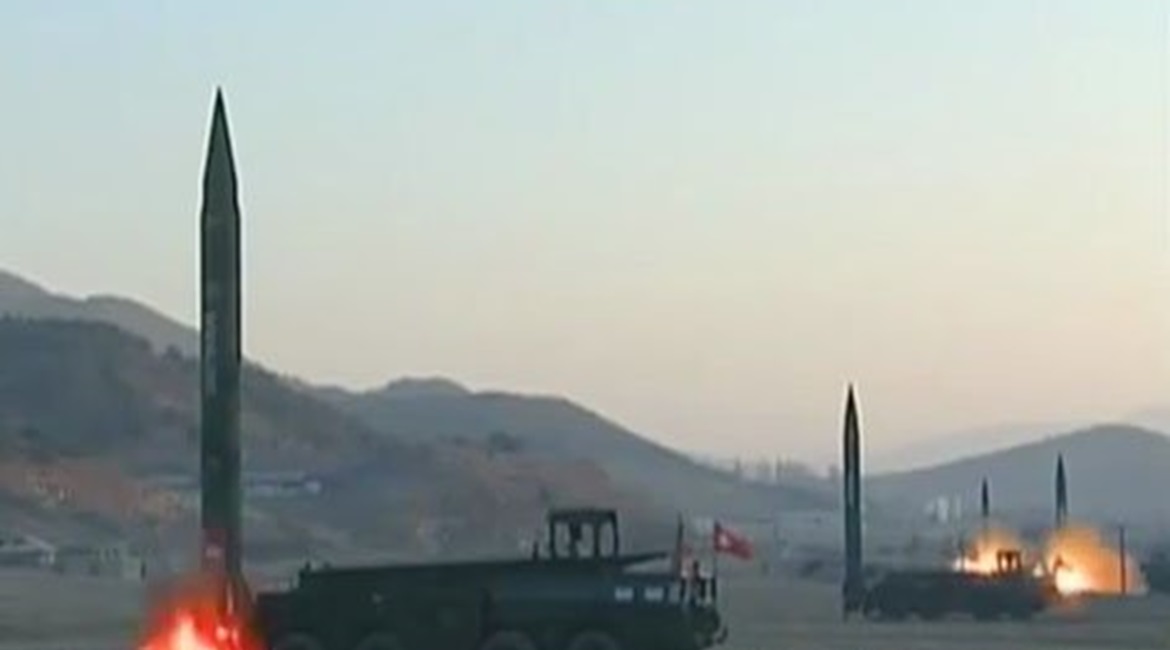
North Korea has expanded the number of its ballistic missile units and bolstered the status, capabilities, and training of its special forces, South Korea’s Ministry of National Defense (MND) said in its 2020 Defense White Paper released on 2 February 2021.
The MND said in the paper that the Korean People’s Army Strategic Force was now believed to comprise 13 missile brigades, compared with nine in 2017, adding that the units – which, among other things, operated ‘Scud’-based short-range, No Dong (Rodong) medium-range, as well as Hwaseong-series intermediate-range and intercontinental ballistic missiles (SRBMs, MRBMs, IRBMs, ICBMs) – were likely to perform functions similar to those of China’s Rocket Force and Russia’s Strategic Missile Forces.

A still from a video released by North Korean state media shows four R-17 (SS-1 ‘Scud’)-like missiles being test-fired in 2017. South Korea’s MND said in its 2020 Defense White Paper that North Korea had increased the number of its missile brigades from 9 to 13. (KCNA)
No further details were provided in the paper, which comes after North Korea paraded a series of new missile systems in recent months, including several SRBM types, two submarine-launched ballistic missiles, and a new ICBM potentially capable of carrying multiple independently targetable re-entry vehicles (MIRVs), in an apparent bid to bolster its strategic deterrence posture and enhance the regime’s chances of survival.
The MND noted that Pyongyang had an estimated 50 kg of weapons-grade plutonium – unchanged from 2018 estimates – as well as “a significant amount of highly enriched uranium” to make nuclear weapons, adding that the North’s ability to miniaturise nuclear weapons “has reached a considerable level”.
Looking to read the full article?
Gain unlimited access to Janes news and more...